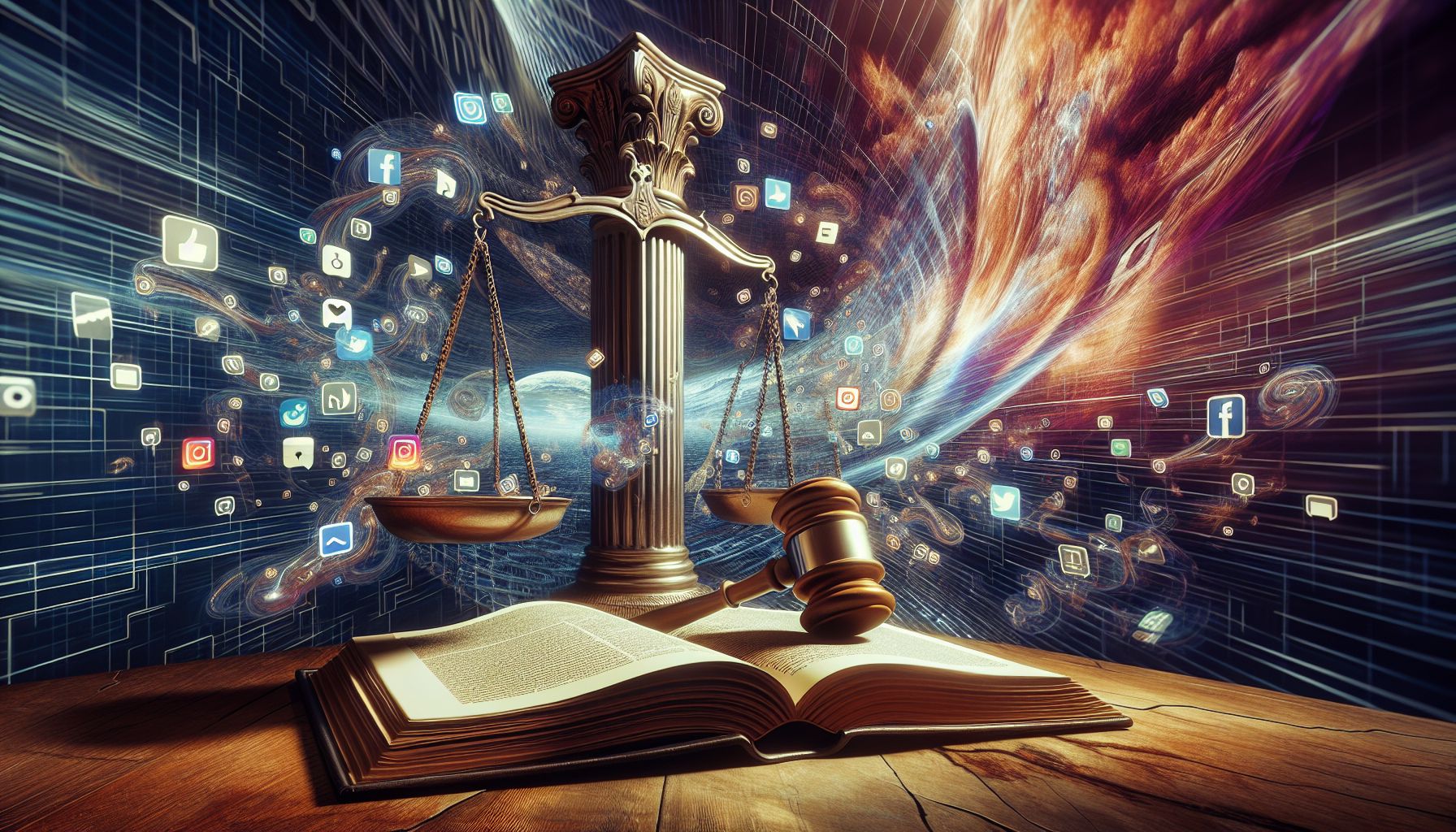The Legal Landscape in the Age of Social Media: Insights and Impacts
In the era where fingertips swipe lives into trending topics, social media has emerged as the great influencer, transcending its role from a mere communication platform to a shaper of social norms and a harbinger of legal precedents. The way we digest news, form opinions, and even engage with the law is being continuously remolded by our investment in these digital dialogues. This virtual realm, teeming with hashtags and viral challenges, isn’t just capturing moments; it’s creating pivotal legal touchstones.
The intricate dance between the gavel and the tweet demands attention. Today, more than ever, legislation is interwoven with likes, shares, and retweets. Case studies are not confined to leather-bound books but are debated in the open forums of social media, often leading to real-world implications and law reforms.
The body of law is not stagnant; it is a living entity that evolves with society’s heartbeat. In recent years, numerous legal decisions have made waves by acknowledging the colossal influence of social media. We’ve seen defamation cases rise, with plaintiffs and defendants drawn from the very veins of virtual platforms. Intellectual property rights have new battlegrounds on YouTube and Instagram, where creativity and copyright clash daily. Employment law has been reshaped, considering employees’ social media conduct, and privacy takes on a new meaning in the age of digital footprints.
Every double-tap or share has the potential to become part of a larger legal narrative. For instance, in a landmark ruling, a court deemed social media posts as admissible evidence in a legal case, setting a precedent for authenticity in the digital age. In another case, cyberbullying legislation found its firm footing when an online harassment incident catalyzed a nationwide outcry, pushing the wheels of justice to grind faster.
Moreover, the duality of social media as both publisher and platform is a source of significant legal discourse. Lawmakers and jurists grapple with the responsibilities social media giants should bear, whether in the spread of misinformation, the policing of hate speech, or their role in elections. As grand juries are convened and antitrust suits are filed, the conversation around regulation and free speech intensifies.
Our concluding thoughts must grapple with the elastic nature of social media. As legal minds dissect each new scenario shaped by our digital conduct, one truth emerges: social media is an undeniable force in sculpting legal realities. It has become a fulcrum on which many critical issues pivot, from influencer advertising laws to the repercussions of virtual activism. We witness a burgeoning dance where the steps are often complex, and the music is written in real-time.
In predicting the future, we might see a greater emphasis on digital literacy in legal education, comprehensive cyber laws that keep pace with innovation, and a continued reshaping of privacy norms. The trend suggests a move towards a world where our online and offline lives are not just parallel narratives but intertwined stories, each with potent legal significance.
As we look ahead, one thing remains certain: the conversations fostered within our screens will continue to test and shape the boundaries of the law. Social media isn’t just part of the legal conversation—it’s becoming the arena in which the future of law is being decided.

